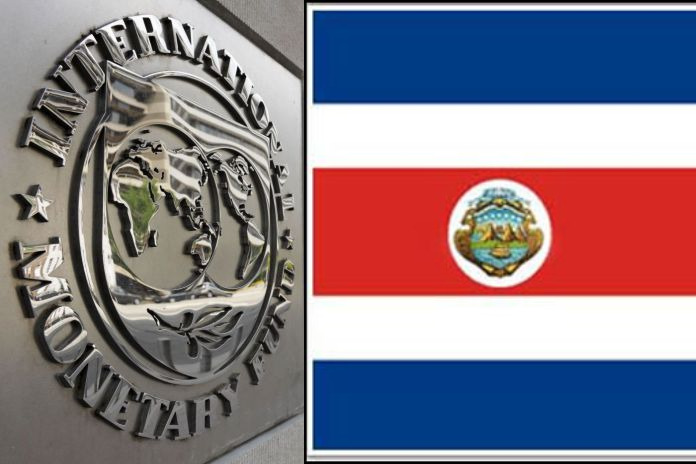WASHINGTON, USA – The executive board of the International Monetary Fund (IMF) completed on March 25 the first and second reviews of Costa Rica’s economic reform program supported by the IMF’s extended arrangement under the Extended Fund Facility (EFF). Completion of these reviews makes available SDR 206.23 million (about US$ 284 million), bringing total disbursements under the arrangement to SDR 412.57 million (about US$ 569 million). The executive board also approved an extension of the arrangement by five months, until July 31, 2024, and a rephasing of access.
Costa Rica’s three-year extended arrangement was approved on March 1, 2021, in the amount of SDR 1.23749 billion (US$1.778 billion or 335 percent of quota in the IMF at the time of approval of the arrangement. See Press Release No. 21/53 ).
Following the executive board’s discussion on Costa Rica, Kenji Okamura, deputy managing director and acting chair of the board, issued the following statement:
“The Costa Rican authorities have made important progress under the IMF-supported program, including a strong fiscal overperformance in 2021 and major advances in strengthening the efficiency and fairness of the public administration.
“While the proactive response to the COVID-19 shock and sustained export performance have supported a robust recovery, the economic outlook remains subject to important global risks posed by the pandemic as well as higher commodity prices and tighter global financial conditions. It is therefore important to build on recent progress to ensure debt sustainability, maintain monetary and financial stability, and promote inclusive, green, and sustainable growth.
“Sustained fiscal consolidation under the fiscal rule remains a priority, while continuing to allocate adequate resources to protect the most vulnerable. Further efforts are needed to enhance revenue mobilization and public financial management.
“The Central Bank of Costa Rica (BCCR) provided key support in buffering the COVID-19 shock. Given the stronger inflation outlook, the ongoing withdrawal of monetary accommodation is warranted, in line with the BCCR’s data-dependent and forward-looking approach, supported by continued exchange rate flexibility. Ongoing steps to further enhance the BCCR’s law will underscore its operational autonomy and governance. The central bank’s roadmap to integrate climate change considerations into its core activities is commendable.
“The financial system has shown resilience throughout the pandemic due to supportive monetary policy and a proactive approach to monitoring risks and updating contingency plans. Ongoing efforts to monitor credit risks, enhance the crisis management framework and incentivize de-dollarization remain critical.
“The authorities should press ahead with their ambitious reform agenda to promote an inclusive and green economy, creating high-quality jobs, for which greater formalization and digitalization, financial inclusion, women’s economic empowerment, and the transition to a lower-carbon economic model will be instrumental. The extension of the current EFF arrangement will provide additional time for the incoming administration to design and implement reforms under the IMF-supported program.”





